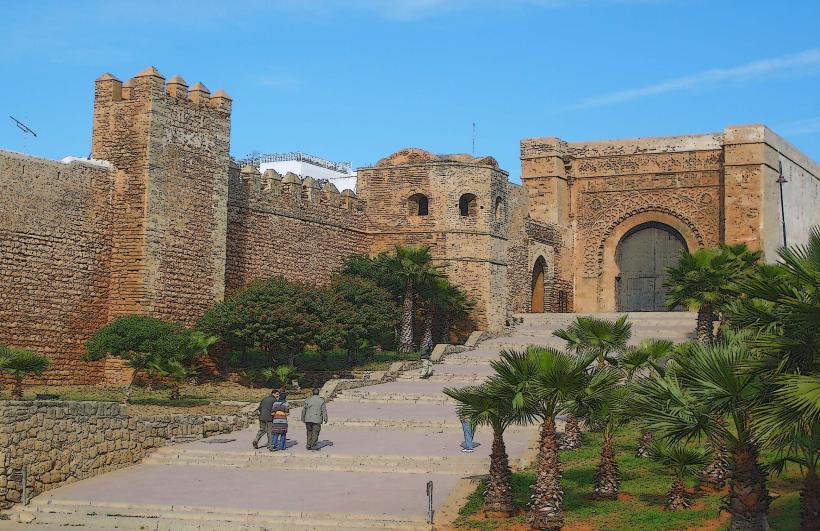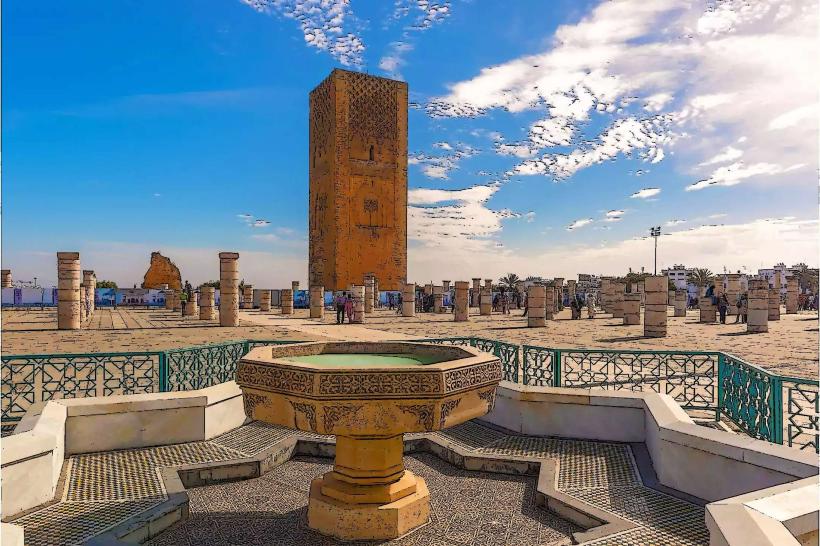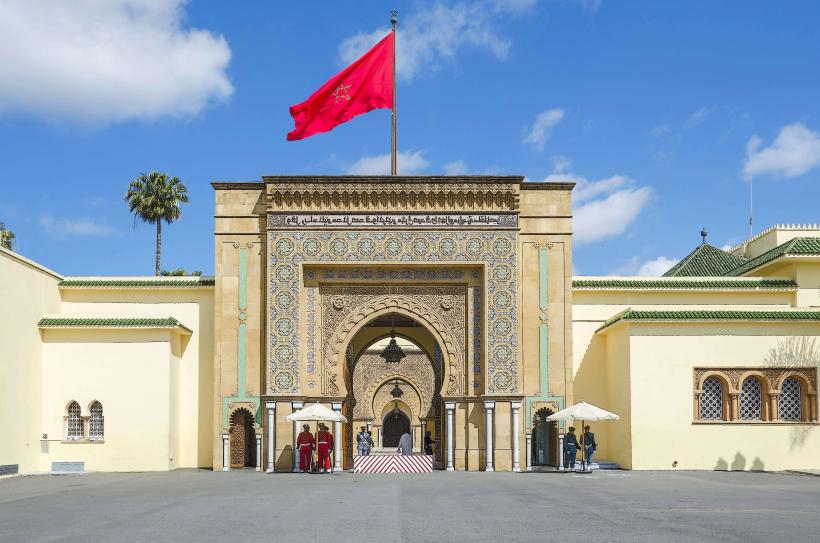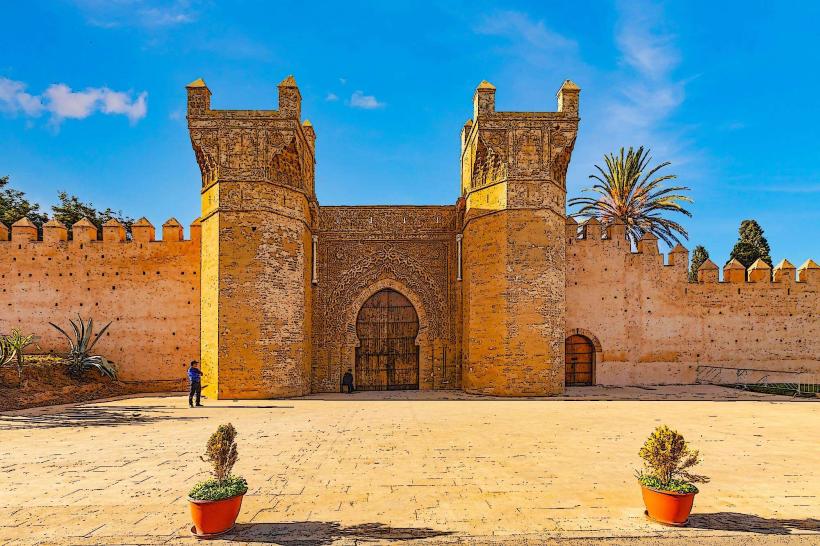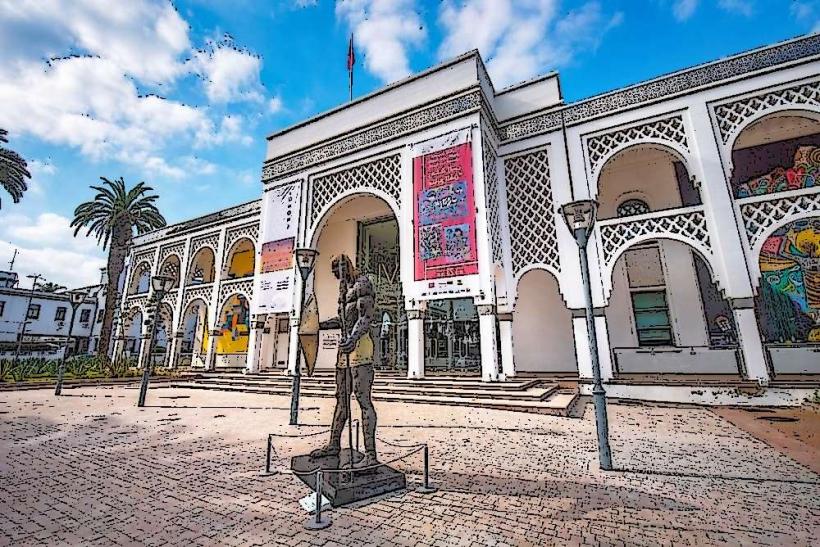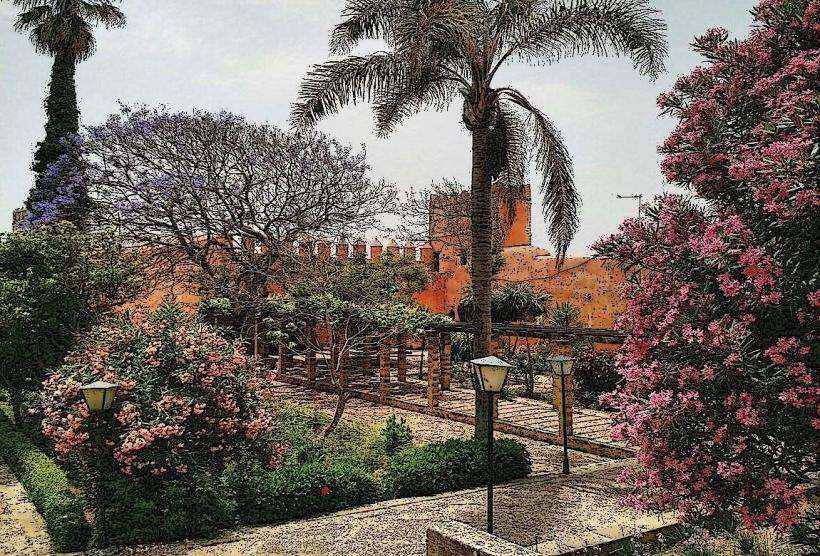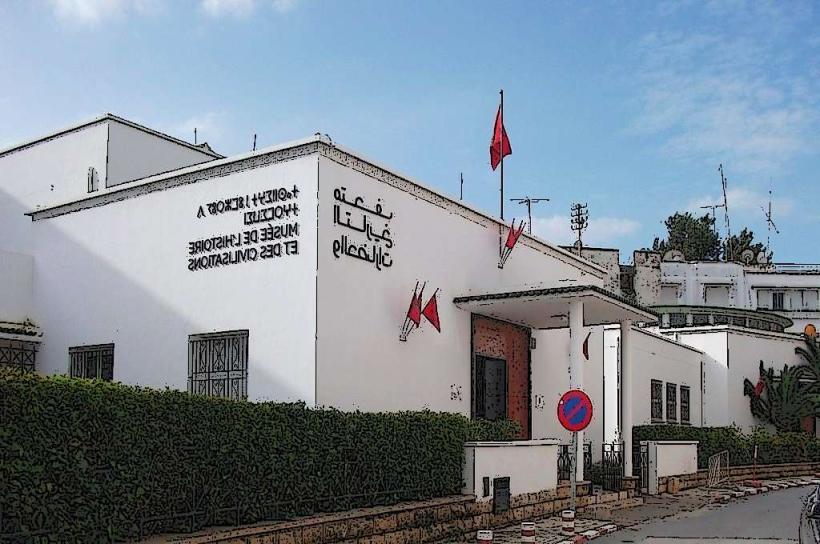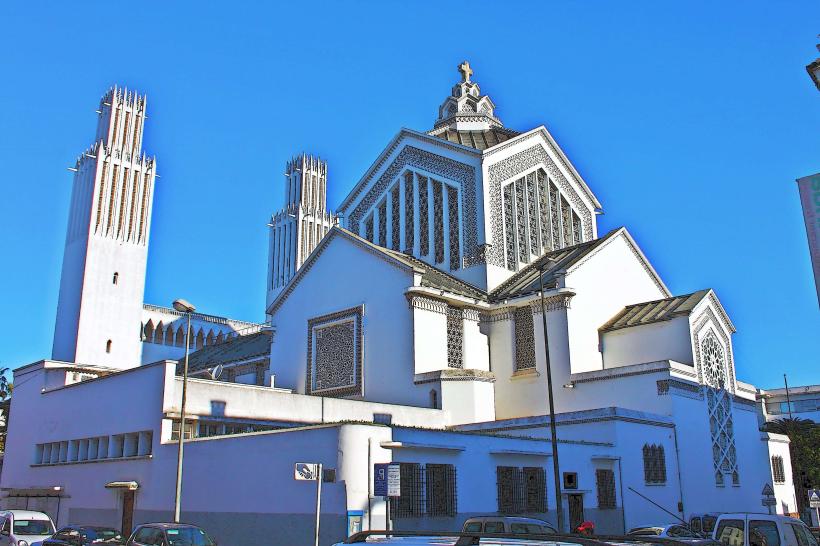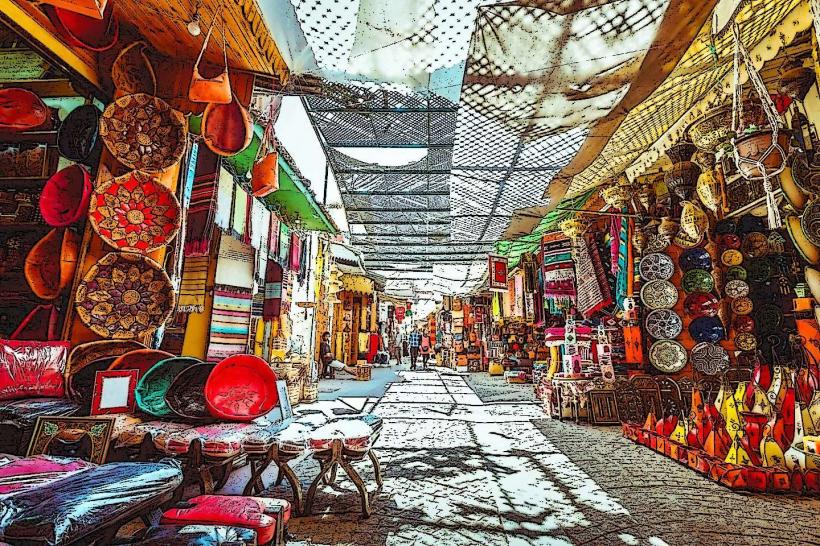Information
Landmark: Mausoleum of Mohammed VCity: Rabat City
Country: Morocco
Continent: Africa
Mausoleum of Mohammed V, Rabat City, Morocco, Africa
The Mausoleum of Mohammed V is a royal tomb and religious complex located in Rabat, Morocco.
It houses the tombs of Mohammed V and his two sons, Crown Prince Moulay Abdallah and King Hassan II.
Visual Characteristics
The mausoleum is constructed from white marble and green onyx. It features a large, square building with a central dome topped by a golden finial. The interior is adorned with intricate zellij tilework, carved stucco, and cedarwood ceilings. The main tomb chamber is accessible via a grand staircase.
Location & Access Logistics
The mausoleum is situated on the Yacoub al-Mansour esplanade in Rabat, adjacent to the Hassan Tower. It is approximately 2km south of Rabat's Medina. Access is via Avenue Al Amir Moulay Abdallah. Public parking is available in designated areas around the esplanade. Bus lines 1, 10, and 12 stop within a 500-meter radius.
Historical & Ecological Origin
Construction of the mausoleum began in 1961 and was completed in 1971. It was designed by Vietnamese architect Eric Martial. The original purpose was to serve as the final resting place for King Mohammed V, the father of modern Morocco.
Key Highlights & Activities
Visitors can observe the sarcophagi of the royal family in the main tomb chamber. The surrounding esplanade offers views of the Hassan Tower. The site also includes a museum detailing the history of the Alaouite dynasty.
Infrastructure & Amenities
Restrooms are available on-site. Limited shaded areas are present within the complex. Cell phone signal (4G/5G) is generally good. Food vendors are not located within the immediate vicinity of the mausoleum, but are available in the nearby city center.
Best Time to Visit
For optimal interior lighting and fewer crowds, visit between 9:00 AM and 11:00 AM. The months of April through June and September through November offer pleasant weather conditions with average temperatures between 20°C and 25°C.
Facts & Legends
The mausoleum was built on the site of a mosque that was destroyed by an earthquake. The current structure was designed to be earthquake-resistant. A unique detail is the presence of a Quran recited by a blind scholar, which is displayed in the museum.
Nearby Landmarks
- Hassan Tower (0.1km North)
- Chellah Necropolis (1.5km West)
- Royal Palace of Rabat (1.8km Northwest)
- Moroccan Parliament (2.2km Northwest)
- Oudaias Kasbah (2.5km Northwest)

